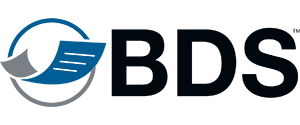Businesses in Massachusetts looking for flexible and cost-effective printing solutions can benefit from BDS’s printer and copier rental services. Whether you need short-term rentals for events, seasonal business demands, or long-term solutions without the commitment of purchasing, we provide high-quality multifunction printers (MFPs), copiers, and production printers from leading brands like Kyocera, Xerox, Ricoh, HP, Canon, and Konica Minolta.
Our rental options include full-service maintenance, supplies, and support, ensuring your equipment operates at peak performance with minimal downtime
How do you know if renting/leasing a printer copier is for you?
VIDEO: printer and copier rental in Massachusetts
Here are some key points to consider when renting a printer and copier:
Assess your printing needs:
Determine your specific requirements before renting a printer and copier. Consider volume, document type, speed, and additional features like scanning or faxing when choosing a printer.
Choose the Right Type:
Various printers and copiers are available for rent. Choose between color or black-and-white laser, inkjet, multifunction copiers (MFPs), and large-format printers.
Understand the Terms:
Review the rental agreement carefully, including duration, monthly fees, maintenance and support, and additional charges. BDS offers short-term and long-term office copier rental options.

Maintenance and Support:
The rental agreement can include maintenance and technical support. For machines to run smoothly and minimize downtime, this is essential.
Supplies:
Check if ink, toner, paper, and other items are part of the package.
Print Security:
If you have important information, ask about security features like encryption, user authentication, and secure printing to keep your documents safe.
Delivery and Setup:
Confirm whether the rental company provides delivery, installation, and setup services. You’ll want a hassle-free experience when office equipment arrives.
Print Training:
Should your team lack knowledge of the specific copier or printer model, ask the rental firm about training opportunities.
References and Reviews:
Look for customer reviews and references to gauge the rental company’s reputation and reliability.
Terms and Conditions:
Thoroughly read and understand the rental agreement terms and conditions to avoid surprises or disputes later.
Return and Renewal:
Understand the process for returning the equipment at the end of the rental period and any options for renewal or upgrades if needed.
Cost Comparison:
Compare renting costs with purchasing similar equipment, factoring in maintenance, supplies, and other associated costs. This will help you determine if renting is cost-effective for your business.
References and Reviews:
Look for customer reviews and references to gauge the reputation and reliability of the rental company.
Terms and Conditions:
Thoroughly read and understand the terms and conditions of the rental agreement to avoid any surprises or disputes later.
Cancellation Policy:
Familiarize yourself with the rental company’s cancellation policy if you must terminate the rental agreement early.
After considering these factors and choosing a rental company that meets your needs, it is important to review the contract thoroughly. If there is anything you don’t understand, don’t hesitate to ask questions. A BDS Team member can walk you through your printer/copier lease or rental.





